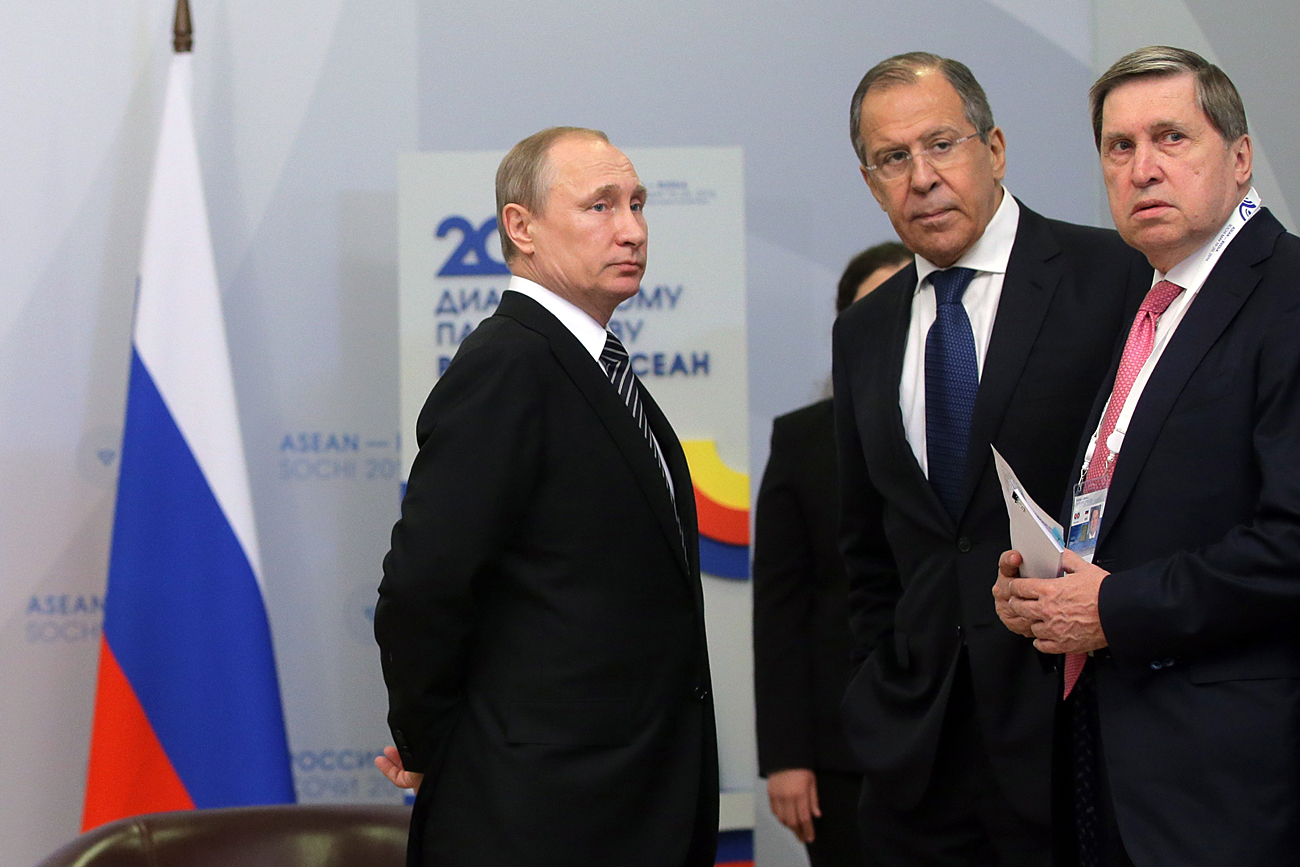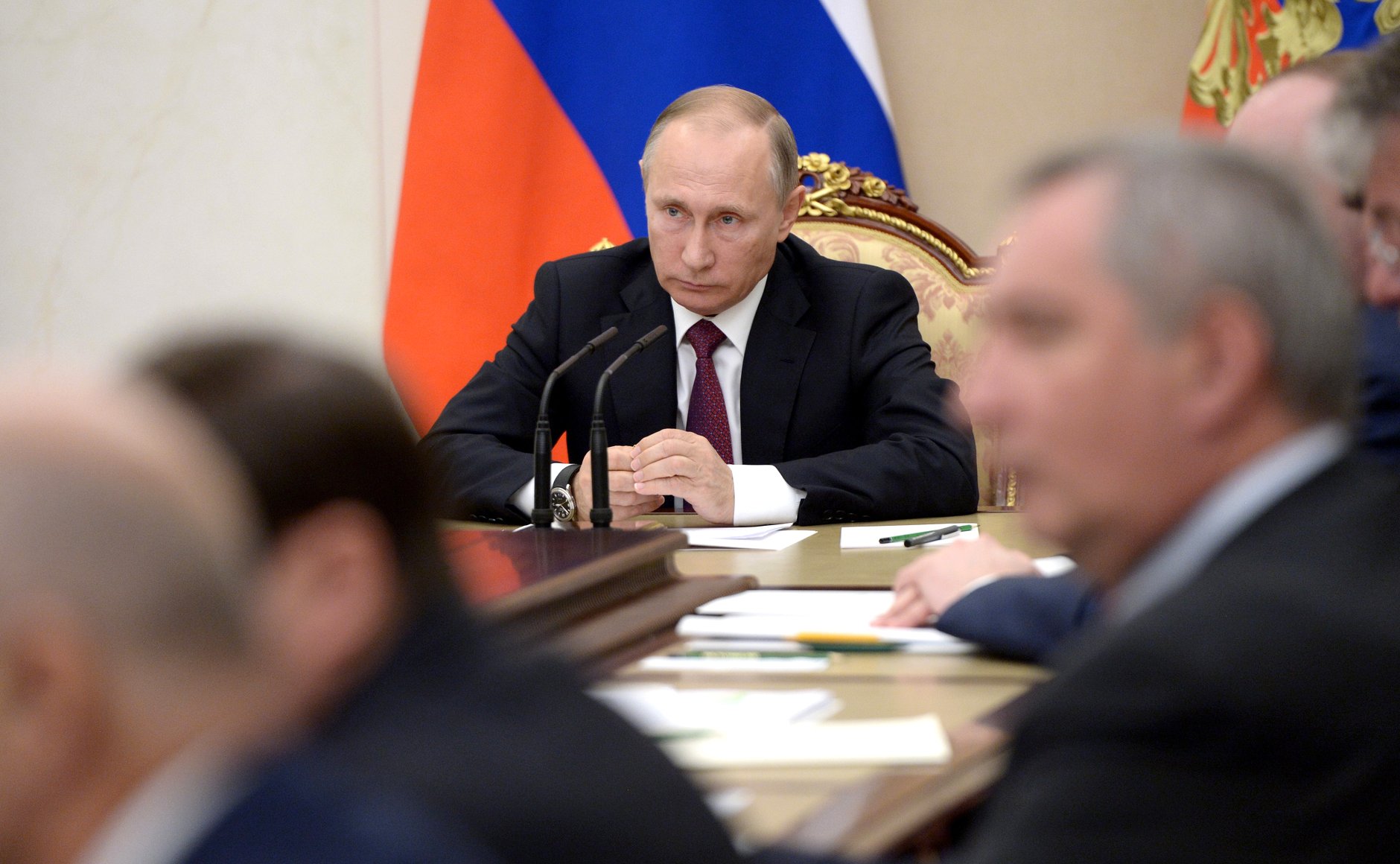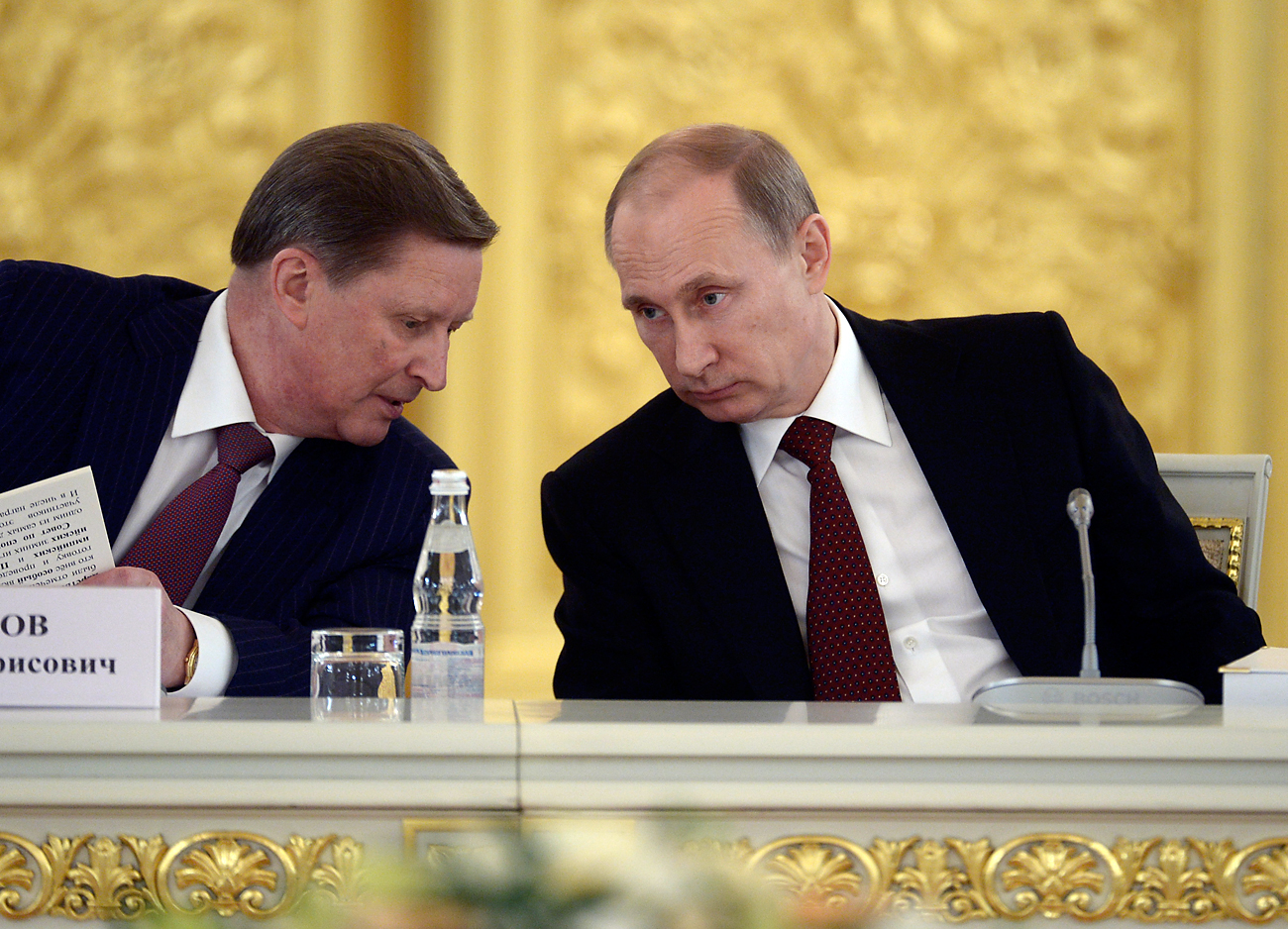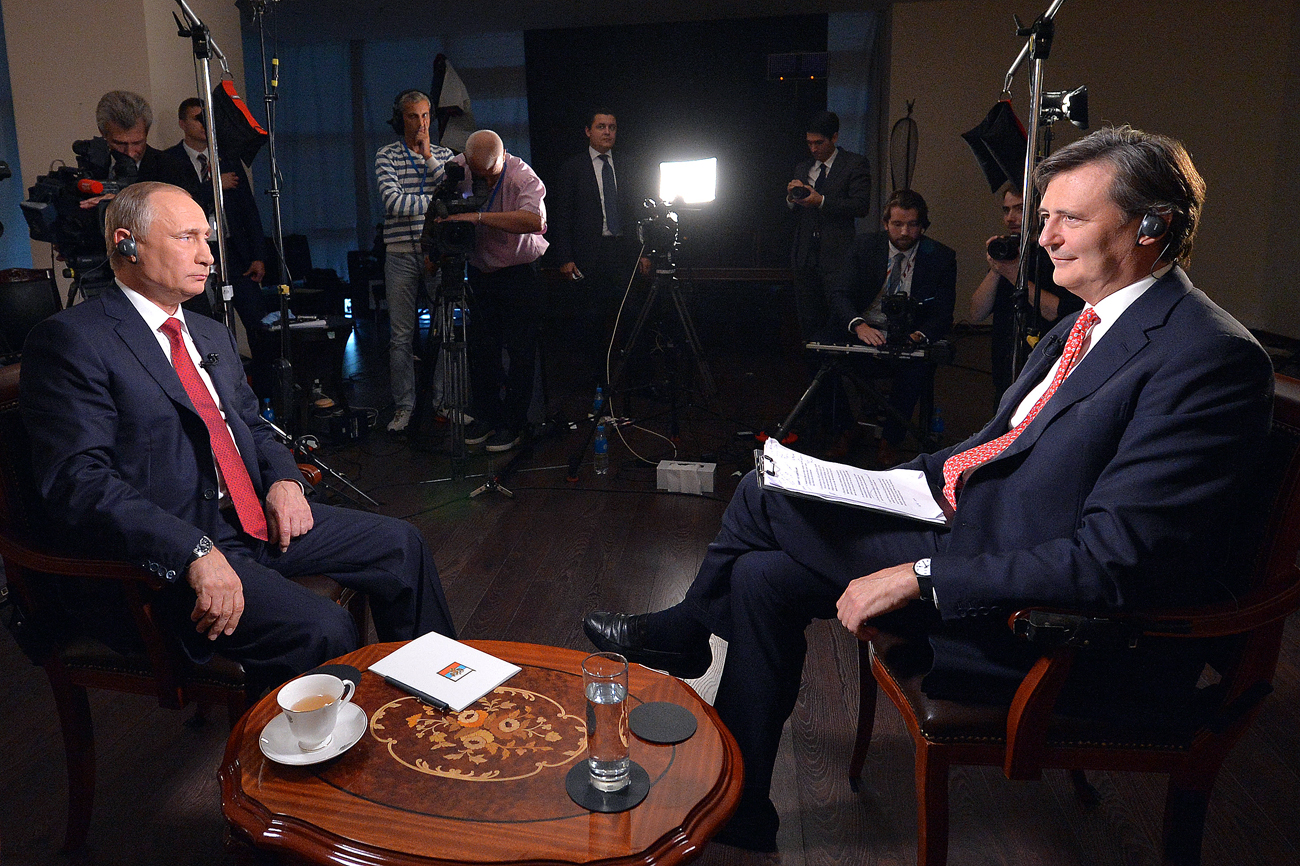Putin adviser Ushakov’s job at risk as Kremlin shake-up continues

President Vladimir Putin of Russia, Russia's Foreign Minister Sergei Lavrov and Russian Presidential Aide Yuri Ushakov (L-R) at the Radisson Blu Resort & Congress Center in Sochi, Russia, May 19, 2016.
Mikhail Metzel/TASSThe Russian media has reported the impending dismissal of the Russian president's adviser for international affairs Yury Ushakov, continuing a recent Kremlin shake-up that has seen the removal of several long-serving officials close to Vladimir Putin.
The Kommersant business daily, citing two sources close to the presidential administration, reported (in Russian) that the departure of Ushakov from the post of the adviser for international affairs is expected to come before March 2017, when he turns 70.
Most experts see the process of renewing the president's entourage, which is now underway, as an obvious reason for Ushakov's resignation. However, there are those who attribute the appearance of a new aide to the upcoming U.S. presidential election and the desire of the Russian leader to place less of a focus on hawks, the supporters of hardline policy toward the West, in his team.
Ushakov has been in charge of the international agenda in the president's inner circle for years – dating back to the time when Putin was prime minister under the then president Dmitry Medvedev. Prior to that, the official spent 10 years as Russia's ambassador to the United States (from 1998 to 2008). According to the newspaper, people who have worked with Ushakov emphasize his "toughness and integrity."
Ushakov vs. Clinton
Russian political bloggers have come up with different assumptions about what is involved in Ushakov's possible departure. According to one theory, the resignation of Putin's long-term aide may be related to the upcoming U.S. presidential elections. The Russian presidential administration, presuming that Donald Trump barely stands a chance of becoming president, is preparing for Hillary Clinton to capture the White House.
Against this background, Ushakov, who built relations with the Republican administration for a number of years when he was ambassador to the United States, and has a reputation of being a hawk in certain circles, may not be too helpful in regard to establishing sound contact with the next Democratic president.
This is doubly the case because it is no secret that the Democratic Party's nominee for the presidency speaks harshly about the Russian leadership and Russian foreign policy. In this light, the Kremlin hardly needs any additional sources of tension in U.S.-Russian relations.
Trend toward tougher policies
At the same time, experts interviewed by RBTH find no evidence that Russian President Vladimir Putin is ready to soften his policy toward the United States. According to analysts, the case is just the opposite: The current approach of the Russian leadership to the U.S. is more stringent than that it was some time ago, and people with a reputation of being "tough and full of integrity" match it well.
A typical example of the Kremlin's current policies toward Washington is its exit from the agreement on the disposal of surplus weapons-grade plutonium.
In an interview with RBTH, Yury Rogulev, director of the Foundation for U.S. Studies at Moscow State University, recalled recent statements (in Russian) by Russian Foreign Minister Sergei Lavrov, who said that Russia is no longer satisfied with relations that take into account only the interests of the U.S.
Moreover, many analysts say that the figure of a presidential aide is in many respects purely technical and such a person does not have the ability to pursue their own policies.
Alexander Konovalov, a former analyst of the Institute for U.S. and Canadian Studies and now head of the Moscow-based Institute for Strategic Assessments and Analysis, told RBTH that the position Ushakov holds means he is not an independent figure, but has simply carried out the policies of the country's leadership. This is an opinion shared by Andrei Kortunov, head of the Russian International Affairs Council.
‘Rejuvenation of staff’
Given all of this, according to Konovalov, one could assume the existence of some kind of conflict between Ushakov and Foreign Minister Sergei Lavrov.
At the same time, Ushakov's probable departure from his position is happening amid a serious overhaul of the presidential team. Not long ago, a lot of stir was caused by the replacement of Sergei Ivanov, a former security service officer and a long-time Putin associate, who held the post of head of the presidential administration, for Anton Vaino, a little-known and relatively young (he was born in 1972) presidential administration employee.
Sergei Kiriyenko, former head of Rosatom and ex-prime minister who has a reputation as a technocrat and effective manager, was appointed his deputy a few days ago. The move prompted talk about the decline of the influence of the siloviki (a group of former and current security officers) in the president's inner circle.
According to Kortunov, Ushakov does not belong to the siloviki by virtue of his diplomatic background, and his possible departure is part of the "process of staff renewal, their active rejuvenation."
Read more: The spying game: The former KGB officers who run Russia today>>>
Subscribe to get the hand picked best stories every week
All rights reserved by Rossiyskaya Gazeta.
Subscribe
to our newsletter!
Get the week's best stories straight to your inbox


